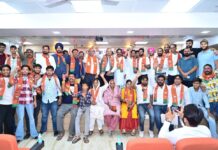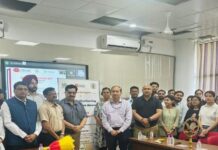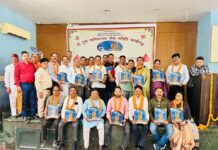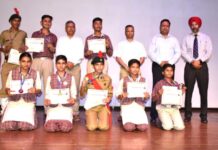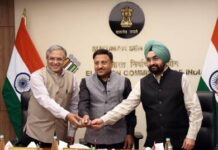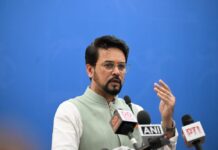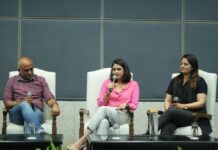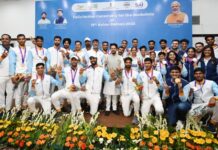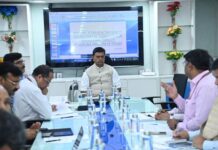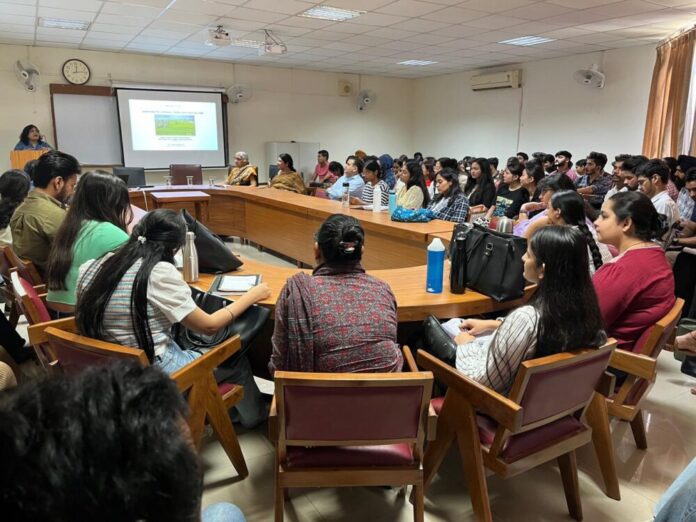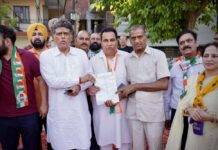Chandigarh October 6, 2023
The Department of Public Administration, Panjab University, Chandigarh in collaboration with IIPA Punjab & Chandigarh Regional Branch organized a special lecture on the topic, “Governing the Commons: Reflections from the Field” as a prelude conference prior to the IIPA Annual Conference 2023 on the theme “New Paradigms of Governance” on October 5, 2023 in the Seminar Room of the Department of Public Administration, Panjab University, Chandigarh. Prof. Pampa Mukherjee, Chairperson, Department of Political Science, Panjab University, Chandigarh was the Resource Person.
Dr. Bharati Garg welcomed the guests and the Resource Person. Professor Ramanjit Kaur Johal, Secretary, IIPA Punjab & Chandigarh Regional Branch introduced the theme of the lecture and explained that the new paradigms which are to be talked about are not exactly new but get prominence in the contemporary times due to environmental factors. She further elaborated that the explanation of the commons has been stated as early as in 1960s in the book, “The Tragedy of the Commons” with special reference to misutilization and overexploitation of common resources.
Professor Pampa Mukherjee proceeded in two parts for the lecture, one constituting theoretical and conceptual understanding of the “Commons” and another highlighting the study based in the field. She stated that understanding about the “commons” has been ambiguous due to focus on different aspects of definition of the term. In the 1970s – 1980s, the term commons were associated with political agenda and as an advocacy mechanism but having no relevance on the ground. Additionally, she stated that delineation of the commons was based in the economical discourses and was smaller in the size as she referred to Dr. N.S. Jodha’s study in EPW about grazing and pasture lands. She further stated Elinor Ostrom’s definition of commons as Common Property Resources or Common Pool Resources based in the property rights framework. She emphasized on the critical aspect of common resources of governance and identification of appropriate institutions for governance and about the role of state and linkages with the market forces. She also elaborated upon the different governance mechanisms such as Property Rights Framework and State-Market-Framework and upon David Finney’s Communal Resources Framework. She consolidated the definitions of common resources and associated them with the features of Renewability and Poly-Centric Institutional Arrangement (i.e., including state, community and market in the governance).She further stated the difficulties of excludability and inefficiency of state/market governance arising in managing such community resources.
Professor Mukherjee highlighted that in her study on Punjab’s commons, the most critical resource is land i.e., common/shamlat land. She explained the auction mechanism of rural commons and significance of land in terms of social, economic, legal and political domains. The speaker also presented an example of state – market – community led governance mechanismin the district of Kangra in Himachal Pradesh with respect to irrigation system (Kuhl). The talk was followed by discussion and questions/answers. The lecture was attended by students, research scholars, faculty members from colleges and IIPA members.
Dr. Bhawna Gupta, Department of Public Administration proposed the formal vote of thanks to the speaker for her well documented and enlightening lecture.


